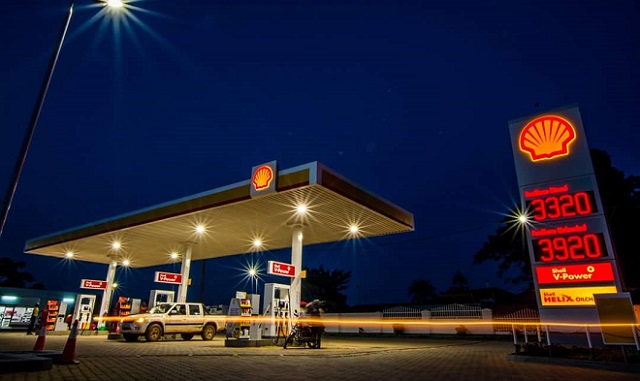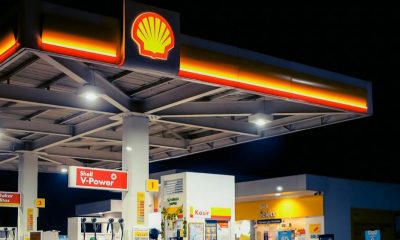Business
Fear Of Fake Fuel: Controversial Test Results from Nairobi Stations, Shell V-Power Quality Questioned
The results were surprising: Total Limuru Road had the highest rating at 92 PON, followed by Astrol Rosslyn at 91 PON. Notably, Shell V-Power was found to perform worse than its standard fuel, an unexpected outcome given its premium branding.

Shell Kenya funds itself in the receiving end following a viral video that had alleged that it was selling substandard fuel at a higher price.
Automotive content creator Kim JH, known online as Tanuki Garage, recently conducted a fuel quality test across seven petrol stations in Nairobi, Kenya. The findings, shared on his YouTube channel and social media platforms, have sparked widespread discussion among Kenyan motorists.
Kim measured the Pump Octane Number (PON) of fuels from various stations. The results were surprising:
The test found that Total Limuru Road recorded the highest rating at 92 PON, followed closely by Astrol Rosslyn at 91 PON.
Other stations such as Total Spring Valley and Rubis UN Avenue both registered 90 PON.
At Shell Limuru Road, the results showed a notable contrast, with V-Power scoring 87 PON while the standard fuel at the same station recorded a higher rating of 91 PON.
A similar trend appeared at Shell Lavington, where V-Power scored 87 PON, while regular fuel at the same station recorded 90 PON.
The findings suggest that consumers paying a premium for V-Power at some locations may not be getting the expected fuel quality advantage.
Shell V-Power was found to perform worse than its standard fuel, an unexpected outcome given its premium branding.
Some motorists have gone as far as alleging that Shell’s fuel is “fake,” amplifying fears of widespread fuel adulteration in the country.
Vivo Energy Kenya, the firm that owns and sells Shell products in Kenya, has however dismissed the claims about Shell V-Power quality, stating they adhere to strict quality standards with Research Octane Number (RON) 93 for Unleaded and RON 95 for Shell V-Power.
The company clarified that fuel imports undergo rigorous testing both at the source and upon arrival in Kenya, ensuring compliance with industry regulations.
The firm has stated that they take these tests with utmost seriousness and they have initiated a comprehensive investigation including an independent laboratory testing.
Despite these assurances from Shell Kenya, consumers remain skeptical. Many are demanding random, independent testing at multiple Shell stations, arguing that pre-selected sites may not provide an accurate representation of the situation.
Some have also pointed to past cases of fuel adulteration in Kenya, which have eroded public trust in petroleum companies.
The Energy and Petroleum Regulatory Authority (EPRA) is now facing mounting pressure to intervene and conduct independent tests to verify these claims.
Shell V-Power, a high-octane fuel (RON 95), is marketed as a premium product designed for better engine performance.
PON, also known as the Anti-Knock Index (AKI), is a measure of a fuel’s resistance to knocking in gasoline engines. It helps drivers select the appropriate fuel for their engine’s compression requirements to avoid knocking or pre-ignition.
The video detailing the testing process and results has garnered significant attention, amassing over 14,000 views within 18 hours of its release. This surge highlights the growing concern among Kenyan drivers regarding fuel quality and its impact on vehicle performance.
Kim JH, who operates the YouTube channel Tanuki Garage, is renowned for his automotive content and boasts a following of 17.6K subscribers. His recent foray into fuel quality testing has further solidified his reputation as a trusted voice in the automotive community.
“Paying more for worse is insane,” he wrote on X (formerly Twitter) following the results of his experiment.
The revelations from this test have prompted discussions about the consistency and transparency of fuel quality in Kenya. Motorists are now calling for more stringent regulations and regular independent testing to ensure that fuel stations provide products that meet advertised standards.
While some critics have speculated that the blogger could have been hired to discredit the stations that ranked lowest, Kim has dismissed these claims. “I’m actually surprised. Well done, Astrol. Remember, I’m not getting paid or anything. This is pure,” he stated.
The test has highlighted potential discrepancies in fuel quality among major petrol stations in Kenya, raising questions about the effectiveness of fuel additives and the overall integrity of fuel sold at premium prices.
This investigation comes against the backdrop of ongoing issues in Kenya with fuel adulteration and the effectiveness of fuel testing kits, as reported by local media. The Energy Regulatory Commission (ERC) has been noted to be replacing defective testing kits to better detect fuel adulteration.
A quick review of social media discussions, particularly on X, shows some users suggesting that certain brands, such as Astrol and Total, offer better-quality fuel. However, these social media insights should be treated as anecdotal and reflective of current public sentiment rather than conclusive evidence.
In summary, Tanuki Garage’s fuel quality test has become a trending topic due to its implications for consumer trust and choice in fuel stations across Nairobi. The findings have sparked a broader discussion on fuel standards and the need for reliable, transparent testing mechanisms.
For a detailed look at the testing process and results, you can watch the full video below:
Kenya Insights allows guest blogging, if you want to be published on Kenya’s most authoritative and accurate blog, have an expose, news TIPS, story angles, human interest stories, drop us an email on [email protected] or via Telegram
-

 Grapevine2 weeks ago
Grapevine2 weeks agoRussian Man’s Secret Sex Recordings Ignite Fury as Questions Mount Over Consent and Easy Pick-Ups in Nairobi
-

 News1 week ago
News1 week agoTHE FIRM IN THE DOCK: How Kaplan and Stratton Became the Most Scrutinised Law Firm in Kenya
-

 Investigations2 weeks ago
Investigations2 weeks agoMulti-Million Dollar Fraud: Three Kenyans Face US Extradition in Massive Cybercrime Conspiracy
-

 Economy1 week ago
Economy1 week agoIran Demands Arrest, Prosecution Of Kenya’s Cup of Joe Director Director Over Sh2.6 Billion Tea Fraud
-

 Business1 week ago
Business1 week agoA Farm in Kenya’s Rift Valley Ignites a National Reckoning With Israeli Investment
-

 Africa2 weeks ago
Africa2 weeks agoFBI Investigates Congresswoman Ilhan Omar’s Husband’s Sh3.8 Billion Businesses in Kenya, Somalia and Dubai
-

 Grapevine5 days ago
Grapevine5 days agoA UN Director Based in Nairobi Was Deep in an Intimate Friendship With Epstein — He Even Sent Her a Sex Toy
-

 News2 weeks ago
News2 weeks agoTragedy As City Hall Hands Corrupt Ghanaian Firm Multimillion Garbage Collection Tender


















